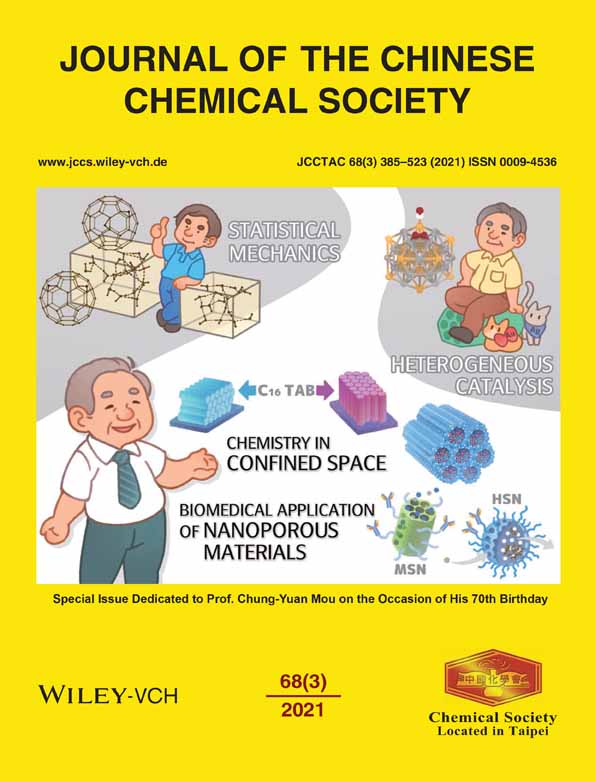New carboline-based donors for green exciplex-forming systems
Funding information: European Union's Horizon 2020, Grant/Award Number: Marie Skłodowska-Curie grant agreement No 823720; Ministry of Science and Technology, Taiwan, Grant/Award Numbers: MOST 109-2622-E-155-014 : 108-2221-E-155-051-MY3, 107-2221-E-155-058-MY : 107-2113-M-002-019-MY3; Horizon 2020; European Union; Ministry of Science and Technology
Abstract
The carbazole of a model compound CPTBF was replaced by α- and β-carboline to give donors α-CPTBF and β-CPTBF, respectively. The introduction of carboline leads the new donors to have deeper highest occupied molecular orbital (HOMO) energy levels. Different electron acceptors were tested, among them, a new acceptor, 3,4-CN, was found to give exciplexes with efficient green emissions that are blue-shifted as compared to that of model CPTBF:3,4-CN system. The exciplex formations of α-CPTBF:3,4-CN and β-CPTBF:3,4-CN blends were verified with the significantly red-shifted emissions different from those of constituent donor and acceptor together with the delayed fluorescent observed by time-resolved PL decay experiments. The organic light-emitting diode (OLED) devices with α-CPTBF:3,4-CN and β-CPTBF:3,4-CN blends as the emitting layer showed a maximum external quantum (EQE) of 7.57 and 7.34%, respectively, which is higher as compared to that (EQE = 6.87%) of the model device employing CPTBF:3,4-CN. These results were attributed to the higher exciplex photoluminescence quantum yields due to the higher delay fluorescence components, deeper HOMO, and higher triplet energy of the carboline donors. In addition, the β-CPTBF:3,4-CN exciplex-based OLED exhibited better efficiency roll-off at higher luminesce due to more charge balance with less polaron formation, which was analyzed with time-resolved EL.




